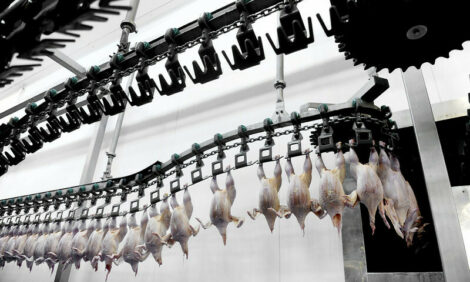



Animal Welfare Plays an Important Role in Sustainable Development
GLOBAL - Animal production and animal welfare are inextricably linked with ethical, political, economic, environmental and social issues, according to the Food and Agriculture Organisation (FAO).How to produce and consume livestock products in ethically and culturally sustainable ways was discussed at the last edition of Slow Food Salone del Gusto in Turin (Italy).
Titled, “Animal welfare: The Pleasure of Respecting Rights", the conference highlighted the central role that animal welfare plays in sustainable development.
Small-scale farmers, experts, civil society and intergovernmental organisations came together at last edition of Slow Food Salone del Gusto in Turin (Italy) at the conference "Animal welfare: The Pleasure of Respecting Rights" and highlighted the central role that animal welfare plays in sustainable development.
The speakers of the conference, jointly organised by Slow Food, the Food and Agriculture Organisation of the United Nations (FAO) and the European Commission, discussed how better animal welfare can contribute to securing environmental and economic sustainability and promote social justice.
The current livestock production in fact has an impact on the environment, from the emission of greenhouse gasses to the use of water and land resources, but also contributes to the livelihood of rural communities and the health and nutrition of consumers around the globe. The conference was one of two events to take place during the Salone del Gusto and Terra Madre dedicated specifically to animal welfare, issues which are becoming increasingly central to the work of Slow Food and its members.
Piero Sardo, president of the Slow Food Foundation for Biodiversity kicked off proceedings by discussing the ethical implications of current methods of livestock production and underlined the importance of maintaining an open discussion and debate on the subject among producers and consumers alike.
For Andrea Gavinelli of the European Commission, animal welfare is a societal concern and it is important that it be included in the sustainability agenda, "The welfare of animals is not only about changing values, but about added value for all those involved", concluded Mr Gavinelli.
Daniela Battaglia of FAO instead discussed the ways in which animal welfare is directly related to such fundamental rights as the right to food and adequate nutrition, livelihood, decent work conditions and overall social justice; and such global common goods as biodiversity and natural resources.
FAO data in fact indicates that up to 850 million people are currently malnourished and for many of these people, particularly in rural communities, the welfare of their animals is inextricably linked with their own livelihood. "The food and the way we eat is not a private issue anymore, we have to take into consideration the effects on the global population, the environment and the animals" urged Ms Battaglia.
Joe Maxwell of the Humane Society International, and a fourth generation farmer, spoke out against the 'cheap meat' industry, which in fact has a very high cost on the health of humans, animals and the planet itself. He also emphasised the need both to protect animals and to support small-scale farmers who are at risk of being pushed out the market.
David Pritchard, expert in animal welfare science and practice, explained how good animal welfare practices can increase productivity while reducing carbon costs. Even just a small investment for farmers, such as a short training course for those handling animals, can have long-lasting results in their activities and a big impact on their farms.
Farmers also took to the stage to share their experiences and encourage producers to consider moving towards better welfare systems. Annechien ten Have-Mellema who runs a family operated pig farm in the Netherlands brought her experience to the table and outlined her five guiding principles towards ending castration: people, pigs, planet, profit and pleasure. "Is animal welfare sustainable to farmers?", she asked and answered with a resounding "Yes!".
Rubens Valentini, a pig farmer from Brazil, instead spoke about his own move from the use of gestation crates to group housing for sows and the way this benefits the animals as well as farmers themselves. "A more modern, efficient and respectful system is a win-win situation", he argued.
But how to convince producers and persuade those who do not want to be persuaded? "The argument, however logically and factually indisputable, has to resonate with the recipients. So let's keep on telling our story, a good story, in an ever better way", he concluded.
Original source: FAO report






